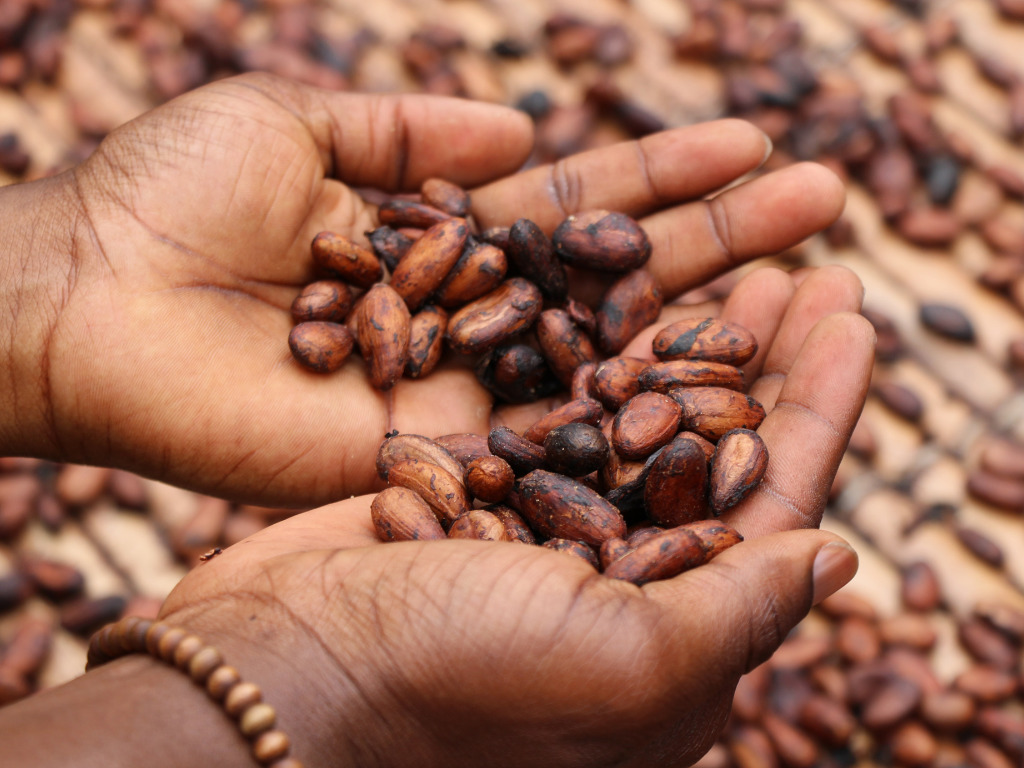3 Mins Read
Transparency is coming to the chocolate industry via blockchain technology, and it could help to mitigate longstanding human rights and labor issues.
Despite commitments from the world’s largest chocolate producers, including Nestlé, Hershey’s, and Mars, unfair wages and human rights labor violations are still commonplace in the cocoa industry. But new blockchain technology from the Swiss-Ghanaian startup Koa could help cocoa farmers.
Koa has developed upcycling uses for the white pulp that surrounds cocoa beans. It creates an additional revenue stream for Ghanaian cocoa smallholders. The company is currently working with more than 2,000 farmers and has plans to add 10,000 more by 2025.
Chocolate blockchain
According to Koa, new partnerships with Germany’s Seedtrace and South Africa’s MTN Group will allow for “tamper-proof” transparency across the value chain that records payments to farmers, specifically small cocoa farmers.
The mobile payments are verified and stored on a blockchain, becoming publicly available. “Instead of having a person enter information on the blockchain, it links the data from mobile money transactions,” said Francis Appiagyei-Poku, finance and administration director at Koa. “This combination allows us to verify additional farmer income, deliver full proof and increase trust among stakeholders.”

The announcement comes after decades of promises by the industry leaders to better support their farmers. Labels including Fair-Trade have helped make a dent in chocolate’s labor issues, but Koa says this is the first time customers can see verifiable proof in real-time showing that farmers not only received full payment, but also fair wages.
“We want to get rid of long, non-transparent supply chains,” Anian Schreiber, Koa managing director and co-founder, said in a statement. “Instead of claiming good practices, we put our cards on the table to let the consumers witness each transaction to farmers.”
Seedtrace has developed a system that it says removes any room for error, ensuring customers the ability to view the payments to farmers.
“We verify each transaction and store it on an open, low-emission blockchain,” said Seedtrace CEO Ana Selina Haberbosch. “Together with Koa, we thereby set new standards assuring that the information is verified, cannot be manipulated and is accessible in real-time for all stakeholders.”
Ethical chocolate
Demand for ethical chocolate has never been higher. Earlier this week U.K. chocolate brand Cadbury opened a vegan pop-up in London. It’s giving away free samples of its Plant Bar.

The “Mean Tweetshop” campaign includes wrapping the bars in packaging covered in “mean Tweets” from skeptics about dairy-free chocolate. Cadbury uses almond paste instead of milk. It says it hopes the dairy-free chocolate can convince even the most vocal critics.
“The Mean Tweetshop is a true celebration of Cadbury Plant Bar and we feel that this is a chocolate that anyone can enjoy, including the sceptics,” Michael Moore, Marketing Manager at Cadbury, said in a statement.
“We hope that some of those who have been quick to judge plant-based products are brave enough to come down and try one for themselves, they really are that good!”
Lead photo by Etty Fidele on Unsplash




